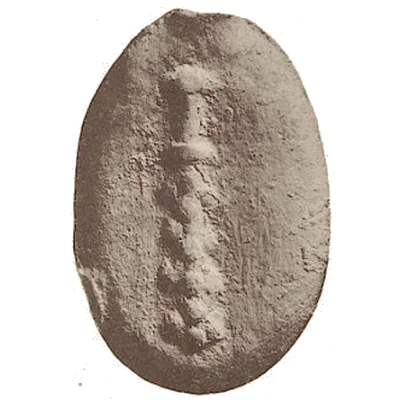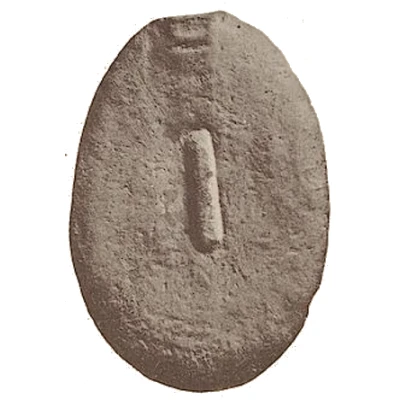


© Ernst Haeberlin; 1910. "Aes Grave". Joseph Baer, Frankfurt, Germany (CC0)
1 As 225 BC - 213 BC
| Bronze | 147.86 g | - |
| Issuer | Umbrian uncertain city |
|---|---|
| Type | Standard circulation coin |
| Years | 225 BC - 213 BC |
| Value | 1 As |
| Currency | As (circa 225-213 BC) |
| Composition | Bronze |
| Weight | 147.86 g |
| Size | 67 mm |
| Shape | Oval |
| Technique | Cast |
| Demonetized | Yes |
| Updated | 2024-10-10 |
| Numista | N#182386 |
|---|---|
| Rarity index | 100% |
Reverse
Value.
Lettering: I
Translation: 1
Edge
Plain
Comment
This type measures around 50x67 millimetres.These coins were originally attributed to being from Umbria; however, some sources suggest these are actually from Volsinii, Etruria, since that city is near the centre of the majority of the spot-finds if any outliers are ignored.
Interesting fact
One interesting fact about this coin is that it features a unique combination of symbols and letters that provide insight into the culture and beliefs of the ancient Umbrian civilization. The obverse side of the coin depicts a stylized head of a deity, possibly Janus, the Roman god of beginnings and endings, while the reverse side features a horseman and a dolphin, which may represent the god Poseidon. The use of these symbols suggests that the Umbrians had a strong maritime culture and worshipped deities associated with the sea. Additionally, the coin's weight and material, bronze, indicate that it was a widely used and accessible form of currency during that time period.